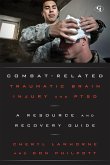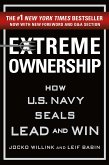Across history, the condition has been called soldier's heart, shell shock, or combat fatigue. Now more commonly known as Post-Traumatic Stress Disorder, it is increasingly being seen in our service men and women as they return from Iraq, Afghanistan, and other combat zones. PTSD affects sufferers in various ways in their everyday lives, and sometimes the signs and symptoms are missed or simply ignored. With instances of PTSD on the rise, however, it is no longer possible to turn a blind eye. Paulson and Krippner take us into the minds of PTSD-affected veterans, as they struggle against the traumatic events they've faced in combat and the lingering effects of these experiences in their daily lives.
Examines how soldiers returning from combat from World War II to the present have been afflicted with post traumatic stress disorder and explores how treatments have changed over time and what can be done to help soldiers better cope with the horrors of war. --
Hinweis: Dieser Artikel kann nur an eine deutsche Lieferadresse ausgeliefert werden.
Examines how soldiers returning from combat from World War II to the present have been afflicted with post traumatic stress disorder and explores how treatments have changed over time and what can be done to help soldiers better cope with the horrors of war. --
Hinweis: Dieser Artikel kann nur an eine deutsche Lieferadresse ausgeliefert werden.








